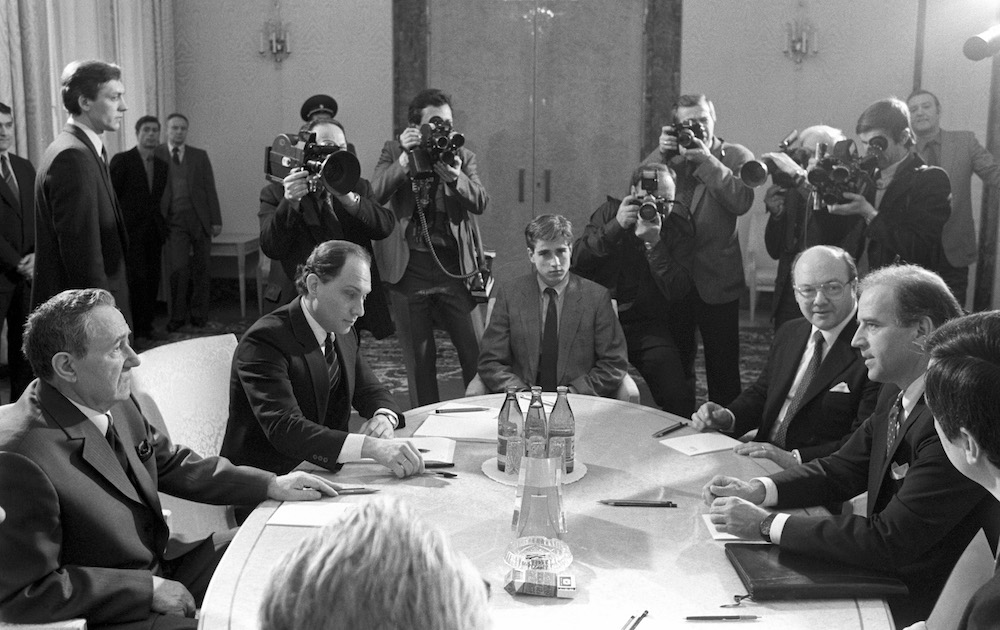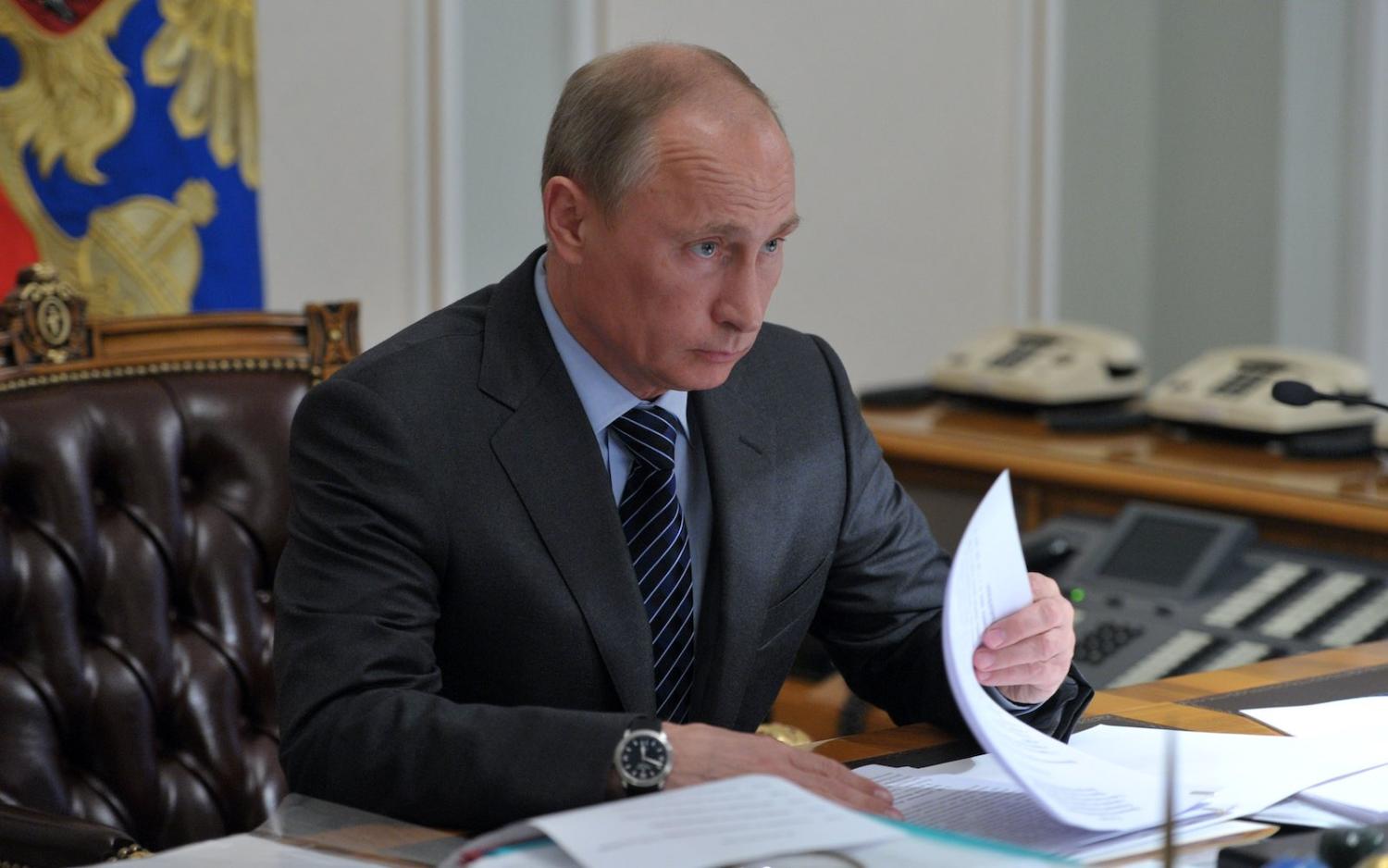Moscow’s muted reaction to Joe Biden’s election victory is unsurprising, and speaks volumes. The Kremlin is likely bracing itself for more confrontation with Washington, as US policy towards Russia hardens.
That’s saying something. Since Russia’s 2014 annexation of Crimea and revelations of Moscow’s interference in the 2016 US elections, relations between the US and Russia have plummeted to a post–Cold War nadir, notwithstanding President Trump’s evident affinity for Russian President Putin.
Putin himself has already noted the incoming US president’s “sharp anti-Russia rhetoric”. In the run-up to the election, Biden characterised Russia as an “opponent” and the state that poses the “biggest threat” to America’s security.
US policy towards Russia will not only get tougher, but also more coherent, with less of the mixed messaging of the Trump administration. Importantly too, Russia policy may prove a rare area of bipartisan consensus in Congress, where Moscow will find few friends among either Republicans or Democrats.
How might life get more difficult for Moscow on Biden’s watch?
First up, the President-elect supports a strong NATO alliance, and will take early steps to reassure and repair relations with its European allies, especially Germany and France. This offers the prospect of a reinvigorated and more cohesive NATO alliance – politically and militarily. Biden favours strengthening NATO’s capabilities to meet both traditional military and new hybrid security threats.
Biden has foreshadowed that in dealing with Russia he will balance confrontation with engagement: “Hang tough but keep talking”.
This doesn’t mean that there won’t still be friction between Washington and its European partners on Russia – not least because there remains considerable “America first” sentiment on Capitol Hill. Under Biden, the US will continue to press its European NATO allies to pay more for their own defence. Biden is also opposed to the Nordstream 2 gas pipeline, which may prove problematic for relations with Angela Merkel’s Germany. And a more hard-line Russia policy from Washington may discomfort those European partners inclined to conciliate Russia, not least for economic reasons. Yet, while transatlantic differences will inevitably persist, Biden will approach alliance management issues in a more reasoned and respectful manner.
Secondly, Biden is committed to renewed US multilateral leadership, and cooperating with partners to uphold shared democratic values and human rights. He has pledged to impose “real costs” on Russia’s violation of international norms, in particular foreshadowing more unequivocal American support for Ukraine. Moves in Congress to toughen sanctions on Russia will likely receive strong White House support. The new administration will take a strong line on Belarus, challenging the Moscow-backed Lukashenko regime’s violent suppression of political dissent and human rights, in the wake of discredited presidential elections. Biden has also voiced support for beleaguered Russian civil society, protesting against what he described as Putin’s “kleptocratic authoritarian system”. Globally, Biden will want America to be more visible and engaged diplomatically, narrowing the room for manoeuvre Russia has enjoyed during the Trump era, whether in Africa, the Middle East or Latin America.

All this will dismay, if not surprise, the Kremlin, which has benefited from the uncertainty and rifts caused by Trump’s antagonism towards US allies, his disdain for international norms and values and his erratic international engagement. The Kremlin expects, and will shrug off, harsh rhetoric from Biden. It will be more concerned how far this translates into action against Russia. More tangible US support for Kiev and democratic movements around Russia’s periphery will worry Moscow, fuelling latent insecurities in the Kremlin, fearful of possible contamination at home from “colour revolutions” in its neighbourhood.
Yet for all that, the Kremlin may not find the Biden administration an entirely unwelcome change.
Biden may reach out quickly to Moscow seeking to negotiate at least a temporary extension of the New START agreement, due to expire in early February.
Moscow will likely welcome the greater predictability and consistency that a more orthodox Biden administration is expected to bring. Even in the depths of the Cold War, Moscow was able to negotiate arms control deals with the implacably anti-Soviet Reagan administration, because it at least knew where Washington was coming from. Biden and Secretary of State–designate Antony Blinken are known quantities to the Russians: Biden made his first official visit to Moscow back in 1979.
Moreover, Biden has foreshadowed that in dealing with Russia he will balance confrontation with engagement: “Hang tough but keep talking”. This suggests a robust, clear-eyed approach, in which Washington will be open to dialogue and cooperation with Russia, where necessary. It would be very much to the advantage of the wider international community for Washington and Moscow to develop a more functional working relationship.
Arms control is a pressing case in point. The bilateral New START agreement is due to expire in early February, and with it any remaining limits on strategic nuclear weapons. Biden may reach out quickly to Moscow seeking to negotiate at least a temporary extension of the agreement. There may also be scope to cooperate with Russia in areas such as climate change, Iran nuclear issues, pandemic recovery and counterterrorism.
Expect, then, the chill in US-Russia relations to deepen under Biden, but don’t rule out the chances of Washington and Moscow finding ways of pragmatically doing business with each other where they judge it expedient to do so.
